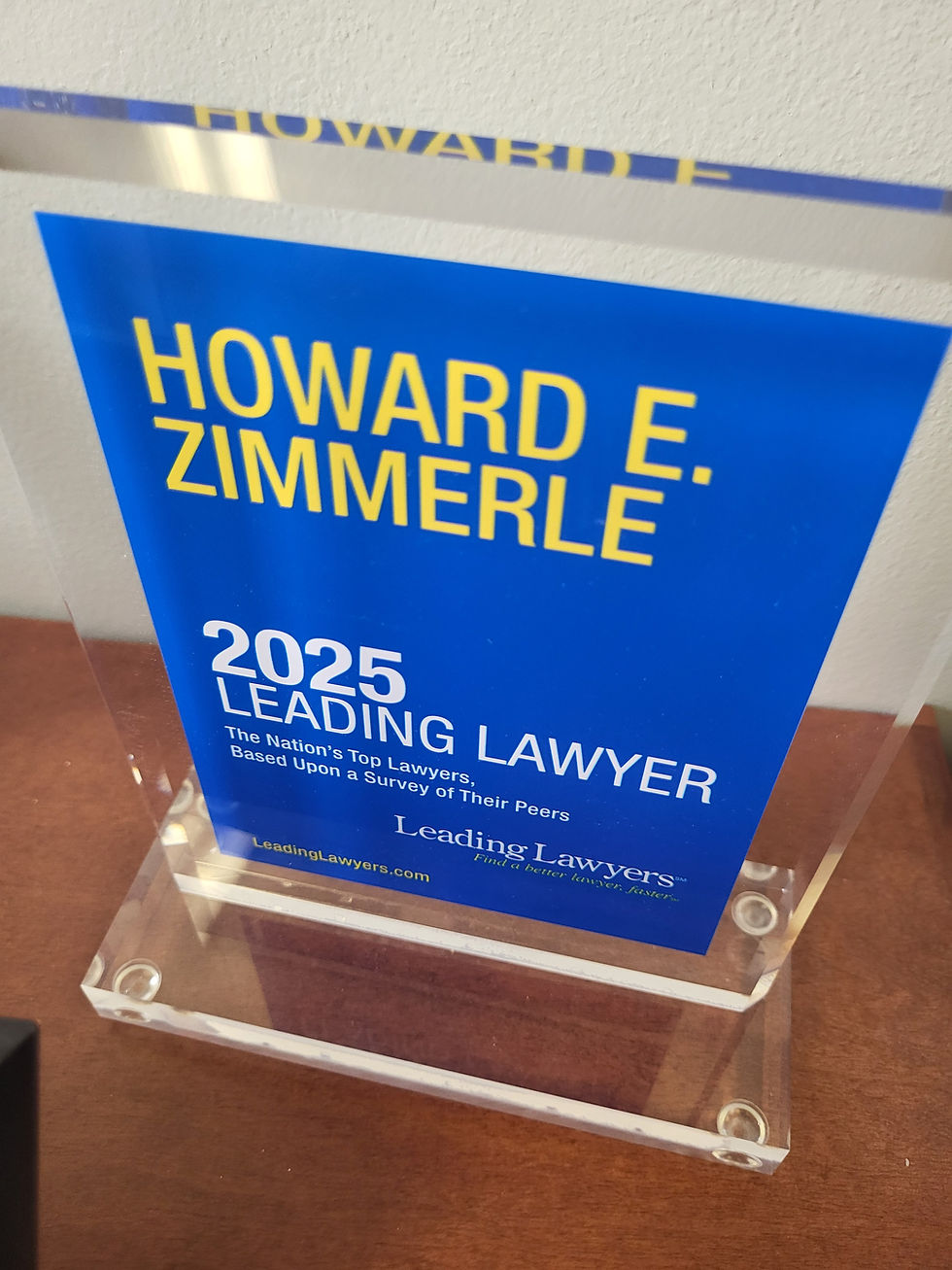Understanding the Interplay Between Illinois Police Pension and Workers Compensation Benefits
- Howard Zimmerle

- Oct 17, 2025
- 2 min read
Unfortunately, police officers have dangerous jobs where they can become injured or disabled. At Zimmerle Law, we have represented police who have been injured - both physically and mentally. Make no mistake, officers have to see and suffer through things sometimes that people should never have to. Thankfully, there are multiple systems available for police to help support them and their families after a significant injury. Illinois provides line of duty pensions, as well as workers compensation benefits, depending on the case and the facts. It's essential for law enforcement professionals to understand how these two systems work together.
The Interplay Between Police Pension and Workers' Compensation
Line of Duty Pensions: If a work-related injury results in permanent disability, officers may qualify for a disability pension. This pension typically offers a higher percentage based on the injury's impact on their ability to work, unlike traditional retirement pensions.
Workers Compensation: Police may also qualify for workers compensation benefits for on the job injuries. Note that Chicago is different - Chicago police have a different system and are typically not subject to the workers comp act.
Offset Provisions: Sometimes, the amount received from workers' compensation can reduce pension benefits. However, for many injuries, police can "double dip" and receive both a line of duty pension and workmans comp benefits. 40 ILCS 5/3-114.5 covers this in detail. As a rule of thumb, workers compensation benefits for "permanent total disability" and "wage differential" may offset pension benefits, but many others will not.
Injuries Where Line-of-Duty Denied: Although the pension board and the workers compensation commission are different systems entirely, they deal with essentially the same issues. Recently, the Illinois Court of Appeals has held that where a police officer's line of duty pension was denied by the pension board as not work-related, that finding can prevent workers compensation benefits as well. However, the facts of this case may not match the facts of your case, so it's important to talk to a good workers compensation attorney rather than simply reading this blog post and giving up. Remember, this is a blog - not actual legal advice, and this doesn't create an attorney-client relationship.
Navigating the Claims Process
The best solution is usually to consult with an Illinois attorney who has handled workers compensation claims for police and who understands these systems. Here at Zimmerle Law, we have represented many police officers for work-related injuries, and would be happy to help our folks in blue. Of course, we're not the only firm out there for these types of cases, but if you are in or near the Quad Cities and want to call us at 309-581-5336, we'd love to hear from you.





Comments